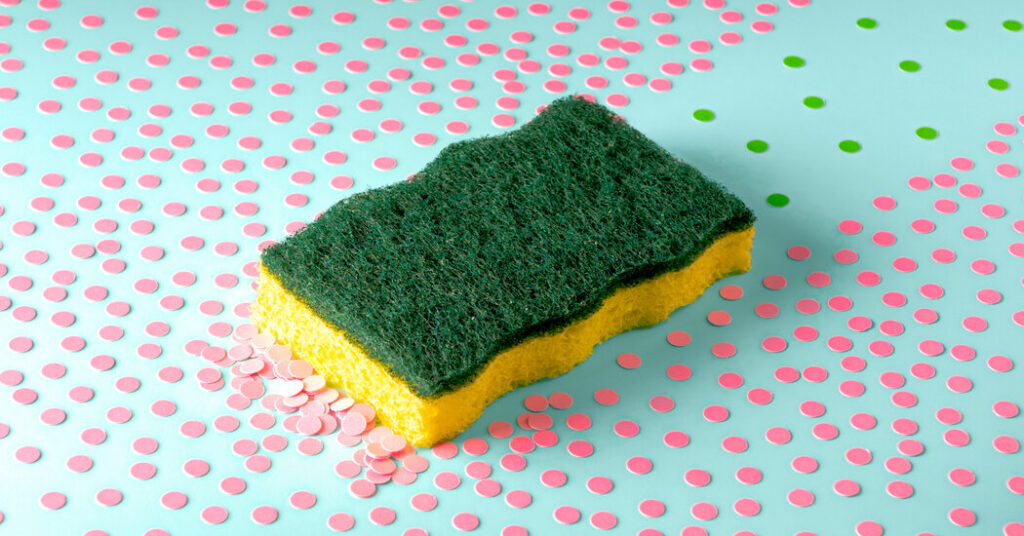
Before getting into the nitty-gritty, let me explain the scientific difference between cleaning and disinfecting. Cleaning removes things — dirt, crumbs, germs, dog hair — from surfaces. Disinfecting, on the other hand, kills things — typically viruses and bacteria. Cleaning is something we may want to do regularly, Dr. Hartmann said, but we need to worry about killing (disinfecting) only dangerous, disease-causing germs. And we can often predict where they’ll be.
For instance, you probably don’t need to disinfect your kitchen counters every day, unless you’ve handled raw meat. You also don’t need to obsessively disinfect your bathroom unless someone in your home has an infection that spreads through stools, like salmonella or norovirus.
For standard messes — like when my 11-year-old drips maple syrup all over the kitchen table at breakfast — you don’t need to reach for a disinfectant wipe when soap and water will remove the sticky residue just fine. (Soap is also great for removing germs from your hands, but you need to build a good lather and wash for 20 seconds.)
Why not disinfect everything anyway, you ask? There are long-term risks associated with the overuse of certain disinfectants, such as quaternary ammonium compounds. These “quats,” as they’re called, are found in many popular household cleaning products, including sprays and wipes made by Lysol and Clorox. These cleaners may increase the risk of antibiotic resistance, Dr. Hartmann said. Plus — although experts I spoke to disagreed on just how much to worry about this — disinfectants like bleach, ammonia and quats release fumes that can be harmful, said Pawel Misztal, a chemist who studies disinfectants at the University of Texas at Austin. So use disinfectants when you need to disinfect, but not when you want to just clean.
Choose and use disinfectants wisely.
When you do have reason to worry about bad germs, heck yes, kill them all with a disinfectant, but keep in mind that some chemicals will work better than others. Plain soap and water can kill germs when lathered, but it’s not going to be as foolproof as other, stronger options if you’re trying to eliminate microbes on surfaces, said Bill Wuest, a chemist at Emory University. Far more effective are disinfectants like bleach, isopropyl (rubbing) alcohol, ethanol, hydrogen peroxide and quat-based cleaners.

